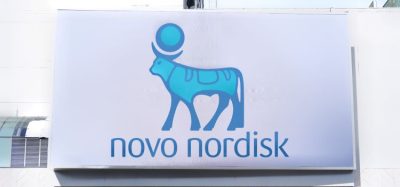EMA human medicines committee (CHMP) highlights, September 2022
Posted: 21 September 2022 | Hannah Balfour (European Pharmaceutical Review) | No comments yet
In its latest meeting, the Committee for Medicinal Products for Human Use (CHMP) recommended 12 medicines for approval, including those for rare diseases, osteoporosis and cancer.


In its first meeting since July, the European Medicines Agency (EMA)’s Committee for Medicinal Products for Human Use (CHMP) recommended these 12 medicines for approval:
Beyfortus (nirsevimab) for the prevention of respiratory syncytial virus (RSV) lower respiratory tract disease in newborns and infants during their first RSV season (when there is a risk of RSV infection in the community).
Enjaymo (sutimlimab) for the treatment of haemolytic anaemia in adult patients with cold agglutinin disease, a rare autoimmune disorder characterised by the premature destruction of red blood cells.
Livtencity (maribavir) for the treatment of adults and paediatric patients with cytomegalovirus infection and/or disease that is refractory to one or more prior therapies. Cytomegalovirus is a type of herpes virus that commonly causes infection after a stem cell or an organ transplant.
Melatonin Neurim (melatonin) for the treatment of insomnia, a sleeping disorder affecting more than 10 percent of the European Union (EU) population.
Mycapssa (octreotide) for the treatment of acromegaly, a rare hormonal disorder where the body produces too much growth hormone, causing body tissues and bones to grow more quickly and this enlargement of the hands, feet, forehead, jaw or nose.
Pyrukynd (mitapivat) for the treatment of pyruvate kinase deficiency, a rare inherited genetic disorder characterised by the premature destruction of red blood cells.
Teriparatide SUN (teriparatide) for the treatment of osteoporosis in adults.
Biosimilar medicine Ximluci (ranibizumab) for the treatment of neovascular age-related macular degeneration, a progressive retinal macular disease, causing gradual vision impairment, mainly in the elderly population.
Generic medicine Sorafenib Accord (sorafenib) for the treatment of hepatocellular carcinoma and renal cell carcinoma, two cancers that start in cells or tissues of the liver and kidney. As well as generic medicines Teriflunomide Accord and Teriflunomide Mylan (teriflunomide), indicated for the treatment of multiple sclerosis.
Zynlonta (loncastuximab tesirine) was recommended for a conditional marketing authorisation by the CHMP as a treatment for adult patients with diffuse large B-cell lymphoma and high-grade B-cell lymphoma, two types of cancer that begin in the lymphatic system when abnormal white blood cells grow.
Enjaymo, Livtencity, Mycapssa, Pyrukynd and Zynlonta were all designated as orphan medicines during development and thus were reviewed by EMA’s Committee for Orphan Medicinal Products (COMP) at the time of approval to determine whether the information available to date allows maintaining the medicine’s orphan status and granting the medicine ten years of market exclusivity.
11 medicines for indication extension
A total of 12 extensions of indication were recommended for Adtralza , Biktarvy, Brukinsa, Evusheld , Exparel liposomal, Revolade, Skyrizi, Vaxneuvance, Xalkori, Yescarta and Veklury.
Veklury was subject to two indication extensions in paediatric populations:
- Paediatric patients (of at least 4 weeks of age and weighing at least 3 kg) with pneumonia requiring supplemental oxygen or other non-invasive ventilation at the start of treatment.
- Paediatric patients (weighing at least 40 kg) who do not require supplemental oxygen and who are at increased risk of progressing to severe COVID-19.
COVID-19 update
In addition to extending Veklury’s indication, several recommendations were made with regards to COVID-19 vaccines and therapeutics:
- Nuvaxovid authorised as a booster dose for adults who have had Nuvaxovid, an mRNA vaccine or an adenoviral vector vaccine as their primary vaccination (recommendation made on 1 September 2022)
- Adapted vaccines Comirnaty Original/Omicron BA.1 and Spikevax bivalent Original/Omicron BA.1 authorised for use in people aged 12 years and above who have received at least primary vaccination against COVID-19 (recommendation made on 1 September 2022)
- Authorising the adapted bivalent vaccine Comirnaty Original/Omicron BA.4-5 for use in people aged 12 years and above who have received at least a primary course of vaccination against COVID-19
- Converting the conditional marketing authorisations of the COVID-19 vaccines Comirnaty and Spikevax into standard marketing authorisations
- Approving a new manufacturing site in Dessau-Rosslau, Germany, for COVID-19 Vaccine Valneva
- Authorising booster doses of Comirnaty for children from five to 11 years of age
- Extending the use of COVID-19 therapeutic Evusheld for the treatment of adults and adolescents with COVID-19 who do not require supplemental oxygen
Safety update
At its extraordinary meeting on 2 September 2022, the CHMP endorsed the recommendation of the Pharmacovigilance Risk Assessment Committee (PRAC) and recommended that medicines containing high-dose nomegestrol (3.75 – 5mg) or high-dose chlormadinone (5 – 10mg) should be used at the lowest effective dose and for the shortest duration possible, and only when other interventions are not appropriate. In addition, low- and high-dose nomegestrol- or chlormadinone-containing medicines must not be used by patients who have or have had meningioma.
Related topics
Drug Development, Drug Markets, Orphan Drugs, Regulation & Legislation, Therapeutics, Vaccines, Viruses
Related organisations
EMA Committee for Medicinal Products for Human Use (CHMP), EMA Pharmacovigilance Risk Assessment Committee (PRAC), The European Medicines Agency (EMA)
Related drugs
COMIRNATY®, COVID-19 Vaccine Valneva, Evusheld, Livtencity (maribavir), Melatonin, Mycapssa (octreotide), Nirsevimab, Nuvaxovid, Pyrukynd (mitapivat), ranibizumab, sorafenib, Spikevax bivalent Original/Omicron, Sutimlimab, Teriflunomide, Teriparatide, Veklury (remdesivir), Zynlonta (loncastuximab tesirine)
Related diseases & conditions
Acromegaly, age-related macular degeneration (AMD), Coronavirus, Covid-19, cytomegalovirus (CMV), diffuse large B-cell lymphoma (DLBCL), Haemolytic anaemia, hepatocellular carcinoma (HCC), Multiple Sclerosis (MS), osteoporosis, Renal cell carcinoma, respiratory syncytial virus (RSV)









